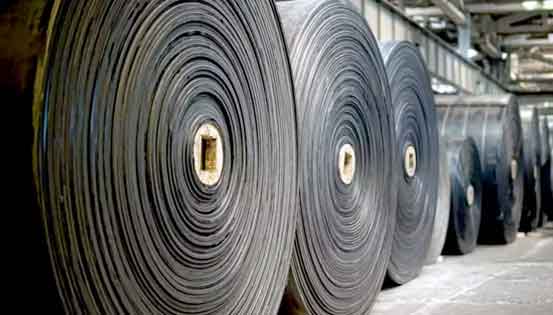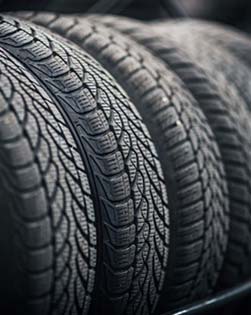Rubber Gloves are protective hand covers worn to reduce human exposure to dangerous or harmful environments. Rubber hand gloves have found their usage in various industrial and medical applications. They are made by using different types of rubber depending upon the requirement of the task. These gloves are of great use when to protect hands from chemicals, hot water, staining, dust, oil or icky substances that need to be cleaned. There are many types of rubber gloves available for various needs.
Types of Rubber Gloves
Rubber hand gloves manufacturers make different types of gloves using various raw materials apt for different purposes.- General-purpose safety gloves or sleeves
- Household gloves
- Surgical gloves
- Industrial gloves
- Welding gloves
- Electrical gloves etc.
Types of Rubber Used in Making Gloves
- Natural Rubber used for making latex gloves
- Natural Rubber Blends
- Polyvinyl Chloride (PVC)
- Neoprene
- Nitrile Rubber (NBR)
- Butyl Rubber (IIR)
- Polyvinyl Alcohol (PVA)
- Vinyl Alcohol (PVA)
- Fluoroelastomers (FKM)/ Viton
The most popular of these rubber latex gloves are the nitrile rubber gloves or the nitrile gloves and the vinyl gloves. While the household gloves used for dishwashing and other such works are mostly made of latex, the industrial gloves are made from high performing synthetic rubber types mentioned above.
Advantages and Disadvantages of Industrial Rubber Gloves
There are a variety of glove types available in the market today which are designed for use with specific chemicals and chemical families. Each type of glove has its own advantages and disadvantages and this should be considered carefully before use. The following table highlights the advantages and disadvantages of each type of gloves:


| Type | Advantages | Disadvantages | Use Against |
| Natural Rubber (Latex ) | Good physical properties, dexterity, low cost | Poor against greases, oils; organics frequently imported. | Bases, alcohols, dilute water solutions; fair vs. aldehydes, ketones |
| Natural Rubber Blends | Dexterity, better chemical, low cost resistance than natural rubber vs. some chemicals | Physical properties frequently inferior to natural rubber | Same as natural rubber |
| Polyvinyl Chloride (PVC) | Very good physical properties, medium cost, medium chemical resistance | Plasticizers can be stripped | Strong acids and bases, salts, other water solutions, alcohols |
| Neoprene | Medium chemical resistance, medium physical properties | N/A | Oxidizing acids, anilines, glycol ethers |
| Nitrile | Excellent physical properties, long service life | Poor vs. benzene, methylene chloride, trichloro- ethylene & many ketones | Oils, greases, aliphatic chemicals, xylene, perchloroethylene, trichloroethane; fair vs. toluene |
| Butyl | Specialty gloves, polar organics | Expensive, poor vs. hydrocarbons, & chlorinated solvents | Glycol ethers, ketones, esters |
| Polyvinyl Alcohol (PVA) | Good physical properties, specialty glove, resists a very broad range of organics, | Very expensive, water sensitive, poor vs. light alcohols | Aliphatics, aromatics, chlorinated solvents, ketones (except acetone), esters, ethers |
| Fluoroelastomer (Viton) | Specialty glove, organic solvents | Extremely expensive, poor physical properties, poor vs. some ketones, esters, amines | Aromatics, chlorinated solvents, also Aliphatics and alcohols |
Buying Tips for Rubber Gloves
Factors to consider when selecting gloves include:- Resistance to physical damage such as tearing or abrasion.
- The dexterity needed when the gloves are worn.
- The extent of coverage required.
- Specific hazards such as electricity or volatile organic chemicals (VOC).
- Always inspect the glove for cuts or punctures prior to use To consider the risk of allergic sensitization when selecting rubber gloves rather than just choosing the lowest cost item available.
Applications of Rubber Gloves
Gloves are used in a variety of applications like:- Automotive and aircraft assembly
- Battery manufacturing
- Printing industry
- Food processing
- Chemical processing
- Graphic arts
- Minimal chemical
- Refining
- Mining
- Medical
- Handling abrasive materials coated with grease and oil, caustics, acids and solvents.
RELATED ARTICLES
- Anti Vibration Mountings
- Automobile Rubber Products
- Calendered Rubber Products
- Extruded Rubber Products
- Medical Rubber Products
- Metal Bonded Components
- Rubber Adhesives & Sealants
- Rubber Ball
- Rubber Bands
- Rubber Beading
- Rubber Bearing
- Rubber Belt
- Rubber Buckets
- Rubber Bullets
- Rubber Cable
- Rubber Coating
- Rubber Duct
- Rubber Expansion Joints
- Rubber Flooring/Matting
- Rubber Footwear
- Rubber Gloves
- Rubber Injection Parts
- Rubber Lining
- Rubber Magnets
- Rubber Molded Products
- Rubber Pads
- Rubber Rollers
- Rubber Stopper
- Rubber Suit
- Rubber Track
- Rubber Valve
- Rubber Balloon
- Rubber Stamps
- Rubber Fenders
- Acrylic Rubber (ACM)
- Butadiene Rubber (BR)
- Butyl Rubber (IIR)
- Chlorosulfonated Polyethylene(CSM)/ Hypalon
- Ethylene Propylene Diene Monomer
- Fluoroelastomers (FKM)/Viton
- Isoprene Rubber (IR)
- Nitrile Rubber (NBR)
- Perfluoroelastomer (FFKM)
- Polychloroprene (CR)/Neoprene
- Polysulfide Rubber (PSR)
- Silicone Rubber (SiR)
- Styrene Butadiene Rubber
How to Make a Custom Rubber Stamp?
Whenever designing a custom stamp for your company, never compromise on its quality because in the end it is the most...
Read MoreLatex and Silicone Rubber Tubing - A Comparison!
Many industries use rubber tubing for various purposes. In fact, various types of rubber tubing are used for different applications...
Read MoreSilicone vs Acrylic Adhesive- A Comparison
Silicon and acrylic adhesives are those rubber adhesives that are widely used in Polyimide tapes. In fact, the polyimide...
Read More

